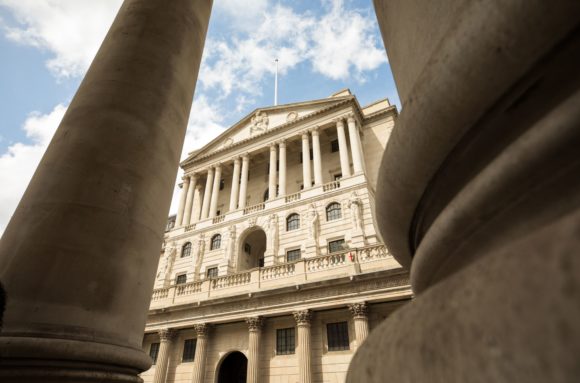The Bank of England has encouraged the government to work with UK insurers in preparation for future major shocks, rather than leave swathes of the economy exposed to catastrophic losses.
The danger of a “protection gap” is emerging as firms reeling from pandemic losses step back from covering major risks, said Anna Sweeney, executive director of the insurance supervision division of the UK’s central bank. The risk of further perilous events such as a severe cyber attack could instead be spread between the public and private sectors, she said.
“Clearly there is a limit to the size of losses that private insurance capital can cover,” Sweeney told a financial conference on Tuesday. “It is worth exploring whether an explicit public-private backstop” is one way of mitigating that risk.
The world’s insurers have been pummeled by the virus, with claims for lost earnings, canceled events and travel all hurting their bottom lines. Firms have aimed to mitigate future risks by hiking premiums for some businesses or removing coverage altogether. Lloyd’s of London, the world’s biggest insurance market, has called for the creation of a government-backed fund to help cover the cost of claims in the event of future pandemics.
“One of the things the pandemic has shown is there needs to be a much better partnership between the government and private enterprise,” Lloyd’s Chairman Bruce Carnegie-Brown said at a separate conference on Tuesday. “Where there is no insurance, governments pay, and certainly that is what is happening through the pandemic.”
Lloyd’s has met with officials from a number of governments on creating a state-backed insurance pool to help cover global catastrophic events, he said.
UK insurer Beazley Plc plunged as much as 15.5% on Tuesday after doubling its estimate of first-party Covid-19 claims to $340 million after compensation from its reinsurers. Most of the increase was caused by event-cancellation losses.
“The pandemic has highlighted risks around unintended exposures in insurance contracts and unexpected links across risk areas under extreme circumstance,” said Sweeney. “There is a risk of excessive risk aversion and an overshoot leading to an aggregate reduction in supply that damages recovery.”
Topics Carriers
Was this article valuable?
Here are more articles you may enjoy.



 Zurich Insurance Profit Beats Estimates as CEO Eyes Beazley
Zurich Insurance Profit Beats Estimates as CEO Eyes Beazley  Viewpoint: Runoff Specialists Have Evolved Into Key Strategic Partners for Insurers
Viewpoint: Runoff Specialists Have Evolved Into Key Strategic Partners for Insurers  Preparing for an AI Native Future
Preparing for an AI Native Future  Jury Finds Johnson & Johnson Liable for Cancer in Latest Talc Trial
Jury Finds Johnson & Johnson Liable for Cancer in Latest Talc Trial 

